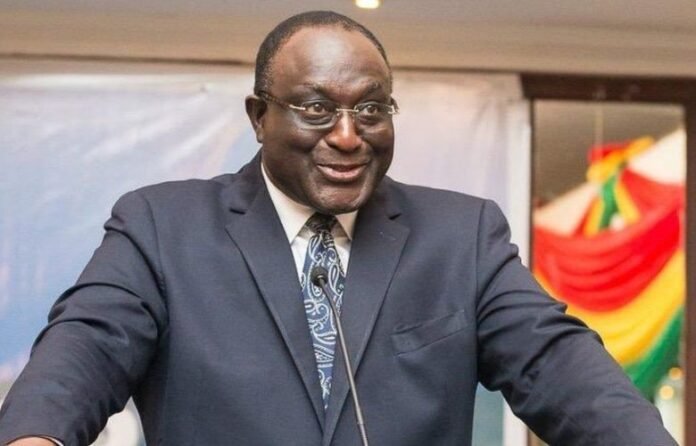The latest poll by Global InfoAnalytics indicates that Alan Kyerematen (AKK), the Movement for Change’s independent presidential candidate, is at 5.3%, Nana Kwame Bediako (NKB) at 4.6%, and others at 0.8%, a clear indication Mr. Kyerematen is warming the hearts of voters ahead of the December 7 polls.
The report also indicates a tightening race for the 2024 presidential election in Ghana, with Vice President Dr. Mahamudu Bawumia (DMB) closing in on former President John Dramani Mahama (JDM).
The poll reveals that JDM’s lead over DMB has shrunk by approximately 3% since April 2024, with current figures showing JDM at 51.1% and DMB at 38.2%.
Potential runoff and regional shifts:
The poll suggests that if a runoff were to occur, JDM would secure 52% of the vote, while DMB would garner 42%, with 6% of voters undecided.
This makes a run-off currently unlikely.
Notably, NKB is making significant inroads in the Central, Ashanti, Eastern, and Volta regions, even leading in the Abura Asebu Kwamankese and Kade constituencies.
Central and Ashanti Regions dynamics:
A dramatic shift has occurred in the Central Region, where JDM’s support has dropped from 51% in April to 39% in July, and DMB’s support has fallen from 45% to 30%.
AKK and NKB have made substantial gains, each securing 13% of the vote.
In the Ashanti Region, DMB has increased his support from 54% to 66%, while JDM’s support has declined from 31% to 22%.
AKK also saw a decrease from 12% to 8%, whereas NKB doubled his support from 2% to 4%.
First-time voters and undecided voters:
The race among first-time voters is currently tied, with JDM and DMB each attracting 41% of the vote. AKK has 8% and NKB has 9%. This marks a significant change from April, when JDM led first-time voters 52% to 33%. Overall, 4.2% of voters are undecided, and 5% have said they will not vote.
Voter sentiment and confidence:
The poll reveals that 63% of voters believe Ghana is heading in the wrong direction, while 27% feel it is on the right track. Additionally, 47% of voters feel their standard of living has worsened over the past year, 21% believe it has improved, and 27% see no change. President Nana Akufo-Addo faces significant disapproval, with 60% of voters disapproving of his performance, while 35% approve.
Confidence in institutions:
Public confidence in the Ghana Police Service and the Electoral Commission has declined. Confidence in the police to maintain order during elections has dropped from 64% in April to 58% in July, while those without confidence increased from 28% to 33%. Confidence in the Electoral Commission’s ability to organize free and fair elections has also decreased from 59% to 53%, with distrust rising from 32% to 38%.
Policy impact:
Regarding the government’s “One Student, One Tablet” policy, 55% of voters support it, while 29% do not. However, 58% of voters say this policy will not influence their vote, with 29% saying it will. Similarly, only 29% of voters say that last-minute projects before the elections will influence their vote, while 56% say they will not.
Voter integrity and key issues:
Only 7% of voters indicated they would accept bribes to switch their votes. The most pressing issues for voters are the economy (73%), jobs (69%), and education (50%).
This tightening race and shifting voter sentiments indicate a highly competitive and dynamic electoral landscape leading up to the 2024 presidential election.
classfmonline.com


